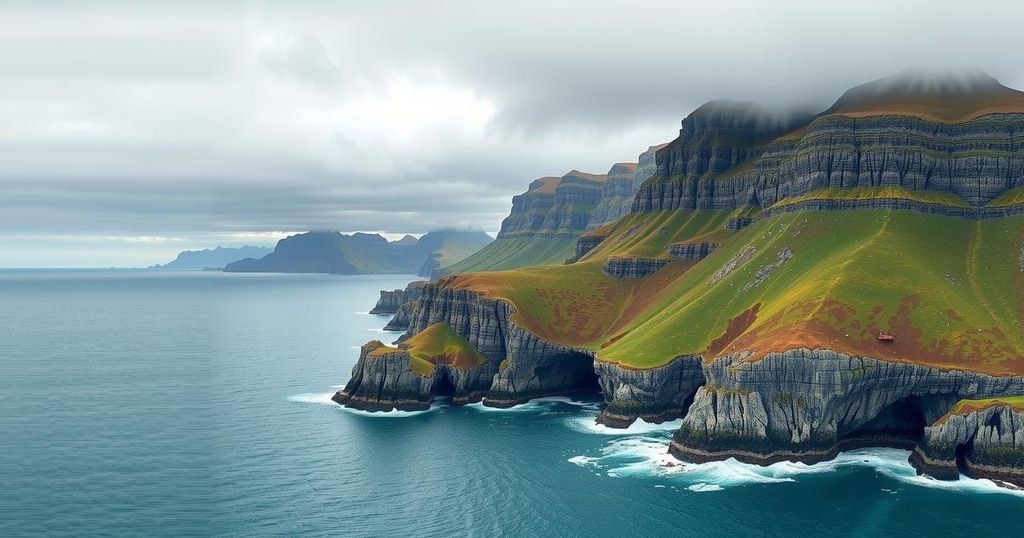Fears regarding the Falkland Islands’ future have emerged following the UK’s decision to transfer the Chagos Islands to Mauritius, which some have denounced as a ‘strategic disaster’. Indigenous Chagossians plan to protest, claiming exclusion from negotiations. Critics warn this could embolden challengers of British sovereignty while support for the agreement highlights varying perspectives on diplomacy and territorial governance.
Concerns have risen regarding the future of the Falkland Islands following the United Kingdom’s decision to transfer control of the Chagos Islands to Mauritius. This decision, made during negotiations that began in 2022, has been labeled a “strategic disaster” by various commentators, including government officials and defense experts. The deal aims to ensure the continuation of a vital military base on Diego Garcia but raises significant questions about territorial sovereignty and security in Western interests.
The arrangement has ignited tension, particularly concerning the potential for China to establish a presence in the Chagos Islands. This has, in turn, led some to worry that Britain’s authority over the Falklands may be jeopardized. Indigenous Chagossians have voiced their displeasure, alleging their exclusion from discussions about their homeland’s future. Chagossian Voices, representing affected individuals, plans to protest, asserting that their opinions have been systematically ignored.
Former armed forces minister Mark Francois expressed that the deal could invite challenges to Britain’s military positions, while also emboldening nations like Argentina to renew their claims to the Falklands. Former cabinet minister Simon Clarke echoed similar sentiments, stating that the agreement undermines the legitimacy of British sovereignty in overseas territories, highlighting the broader implications for international relations and security dynamics.
Contrasting views emerged, notably from Labour MP Tim Roca, who argued against equating the Chagos Islands with other territories, attributing unique historical contexts to each. While proponents of the agreement highlighted its diplomatic implications, some critics, including former Prime Minister Boris Johnson, referred to it as “total nonsense” designed to project a favorable image by the Labour government.
Despite the turmoil, Downing Street has firmly asserted that there will not be any alterations to the UK’s posture regarding Gibraltar or the Falkland Islands, maintaining that these territories remain secure. Furthermore, new statements from U.S. President Joe Biden applauded the agreement as a testament to successful diplomatic efforts, aiming for peaceful resolutions over conflicts. The situation remains contentious as the International Court of Justice previously deemed the UK’s governance over the Chagos Islands as unlawful, with ongoing discussions necessary to address indigenous rights and historical accounts of displacement.
In summary, the UK government’s decision to transfer the Chagos Islands to Mauritius has sparked significant controversy and a variety of concerns regarding the implications for British sovereignty over territories like the Falklands. Indigenous voices, political figures, and international observers are closely scrutinizing the diplomatic ramifications, national security, and historical injustices associated with this agreement. As stakeholders navigate these complex discussions, clarity surrounding Britain’s commitment to its overseas territories is crucial.
Original Source: www.independent.co.uk




